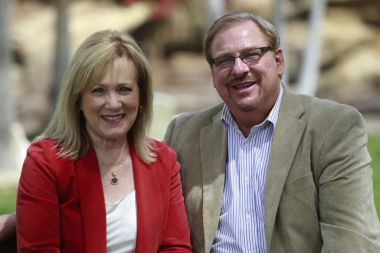Saddleback Church says everybody can be involved in ministry for the mentally ill

Mental health is an important issue for Saddleback Church, especially since lead pastor Rick Warren and his wife Kay lost their son Matthew because of his mental illness back in 2013.
During "The Gathering on Mental Health and the Church" which was held on Thursday, more than 2,200 church leaders were encouraged to be a part of the ministry for the mentally ill, according to The Christian Examiner. Saddleback's pastor of ministry Tommy Hilliker taught them how to "crawl, walk, and run" while developing their ministries for the mentally ill.
"When it comes to building a mental health ministry in your church, a mental health strategy can be built over time," he said. "It can be adapted and implemented in all the areas of ministry of any church. It's regardless of size or location."
The conference, which was held at the Lake Forest, California campus of Saddleback Church, generated an attendance of over 2,000 but more people saw the conference online with nearly 4,000 in number. It was actually started by Rick and Kay Warren last year after Matthew committed suicide inside their home.
Since the young boy passed away, Saddleback Church focused on developing a mental health ministry and is training other churches to follow suit. Kay said the church community should be mindful of the stigma faced by people with mental health concerns, which keeps them from receiving treatment or help.
"No one should ever have to whisper anything about their lives in the church, in the faith community," she said. "Of all places, this is where we must be welcoming and embracing. This is within the power of the faith community. The faith community is the number one legitimising force in society."
Both Hilliker and Kay encouraged churches to take baby steps in implementing their mental health ministries because the first few steps are usually the most intensive. It includes preaching on mental illness, training volunteers how to guide those who deal with mental illness to seek help from the proper resources, and spearheading a recovery ministry for those struggling with addictions.
"We care about the whole person," Hilliker said. "We care about the whole family, and we want to care about them for their whole lifetime. We want to minister to the physical, spiritual, emotional, relational and mental needs of a person because Jesus did."











